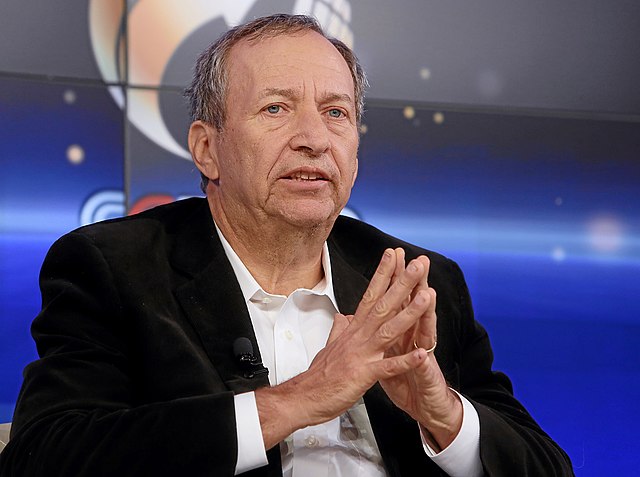Another day, another example of Larry Summers’ unfitness for the authoritative status he enjoys from the financial press. Rather than a payment company accused of criminality, the corporate tie, this time, is to the fintech firm-turned bank, Jiko.
Jiko is a Berkely, California-based fintech startup that was founded in 2016 by a pair of former investment bankers at Goldman Sachs and J.P. Morgan: Stephane Lintner and Rocky Motwani.
The firm describes itself as a “revolutionary new financial network” that offers “spendable T[reasury]-bills as a way for businesses and individuals to directly access the yield and security of T[reasury]-bills with the flexibility of a bank account.” However, far more revolutionary than its business model is the fact that Jiko acquired Mid-Central National Bank in September of 2020. By doing so, Jiko became one of the, if not the, first fintech company to buy a national bank.
The deal for Jiko to purchase the Minnesota-based bank was approved by former Comptroller of the Currency Brian Books. Although not technically Trump-appointed, Brooks held the position for the majority of Trump’s final year in office (Trump’s Treasury Secretary Steven Mnuchin tapped Brooks to be the First Deputy Comptroller of the Currency and Chief Operating Officer, where he then became Acting Comptroller after Joseph Otting left the post). During his tenure, Brooks used his authority to offer cryptocurrency and fintech firms inroads into the banking system. While harmful, his pro-crypto and pro-fintech regulatory approach was unsurprising considering his previous position as Coinbase’s Chief Legal Officer and post-government gig as Binance.US’ CEO.
However, Jiko’s encroachment into the traditional finance system was likely aided by another, more influential, former government figure: Larry Summers. An October, 2022 press release unveiling Jiko’s new corporate-specific service quoted Summers as an advisor to the firm. And while it is unclear whether Summers had held this position prior to Jiko’s acquisition of Mid-Central, what is clear is the conflict of interest created by this corporate tie.
For the past two years, Summers has urged the Federal Reserve to continually raise interest rates in an attempt to end inflation at all costs. Aside from potentially causing a recession, lowering wages, and increasing unemployment – scenarios that Summers treats as unfortunate, but necessary, externalities – rate hikes have increased interest in treasury bills as an investment class. Compared to their long-term counterparts, short-term treasury bills offer more liquidity (they mature in a year or less) and have seen returns balloon from a fraction of a percent in 2021 to over four percent in 2022. This dynamic has been especially beneficial for Jiko which, according to Lintner, had gained “about 60 new corporate clients” in the last few months of 2022. This increase in business has carried into 2023 as the collapse of Silicon Valley Bank (SVB) has sent tech startups flocking to the outstretched arms of banks like Jiko in search of a new place to park their money.
Whether or not Summers’ advisory role at Jiko is driving his hawkishness on inflation is beside the point. It certainly fits with a conspicuous pattern we’ve documented before where Summers takes money from firms who could benefit from rate hikes. Regardless, the lack of disclosure around Summers’ work for a firm that stands to financially benefit from his ostensibly neutral punditry is concerning. At the very least it should be worth mentioning, right? You would think. But, in the immediate aftermath of the SVB collapse, Summers was offered airtime on television program after television program after television program (after television program after television program after television program, and so on) to opine on how government officials should respond without any mention of his corporate relationships.
Emphasis on relationships plural because Jiko is not the only Summers-tied firm that gains an advantage from his elevated media profile. The USDC stablecoin issuer Circle – a company Summers is heavily involved with through his advisory position at the venture capital firm Atlas Merchant Capital – saw over $3 billion in deposits at SVB completely restored. Thanks in no small part to statements he made urging government regulators to facilitate an SVB depositor bailout, this restoration of funds effectively saved Circle from implosion by allowing its stablecoin to regain its $1 peg.
In the face of so many glaring conflicts of interest, RDP is once again asking how and why these ties are never mentioned when Summers is interviewed and quoted by reporters. If his sudden heel-turn on the issue of moral hazard when it benefits big business vs. average debtors isn’t enough to raise some eyebrows, Summers’ expansive and often undisclosed network of corporate relationships should warrant a complete reappraisal of his stature in the financial press.
PHOTO CREDIT: “Lawrence H. Summers World Economic Forum 2013” by World Economic Forum is licensed under CC-BY-2.0

